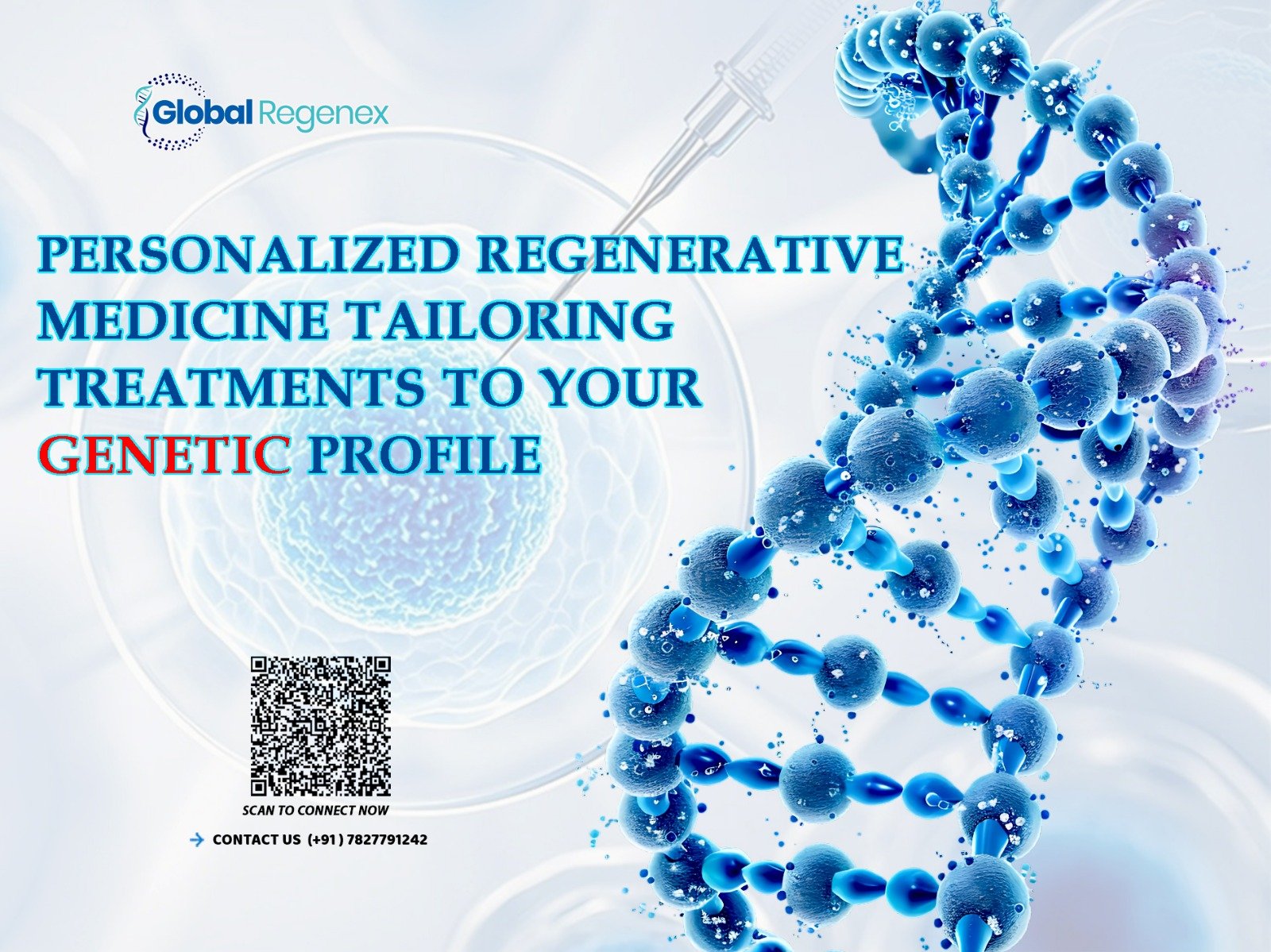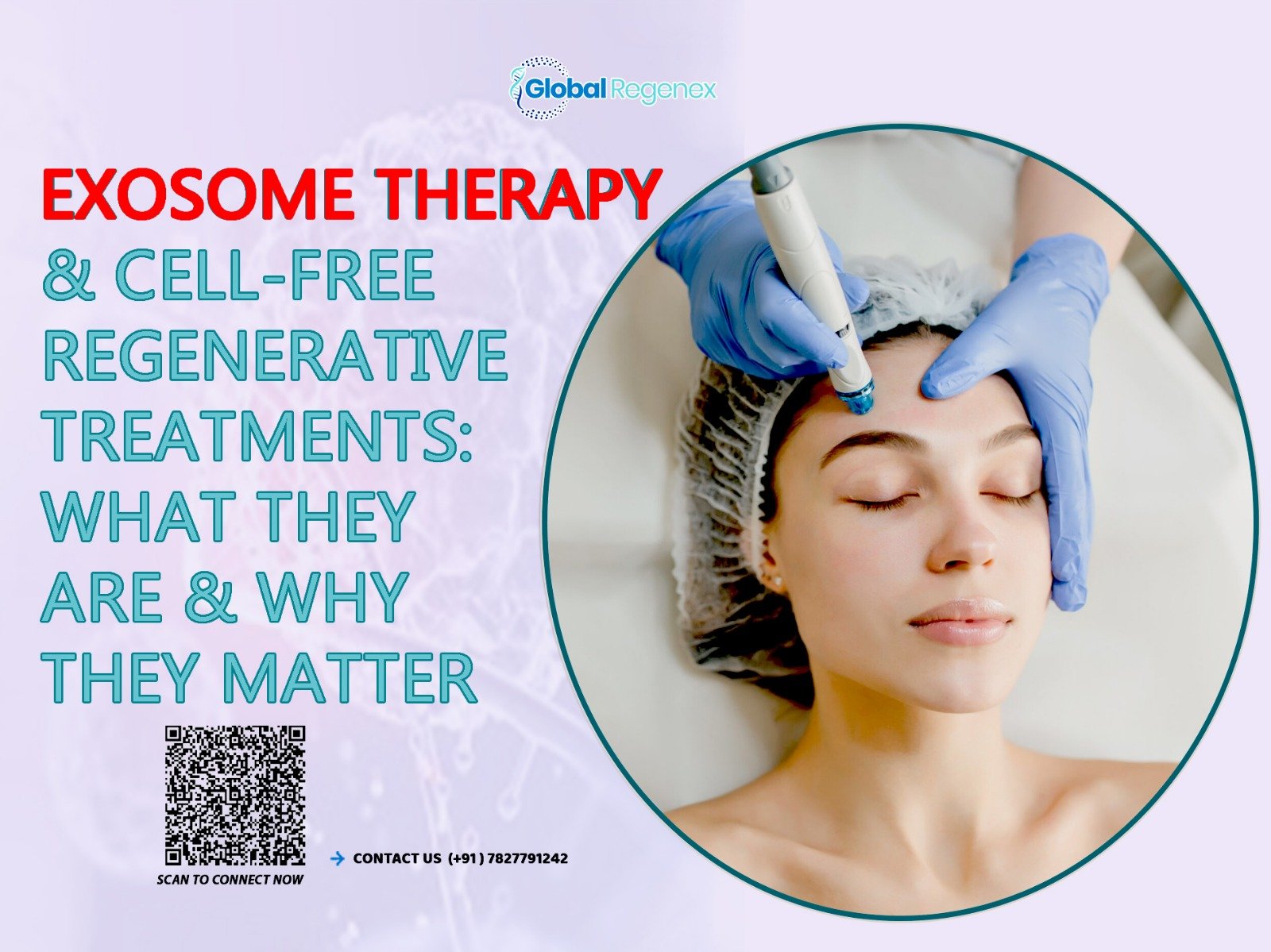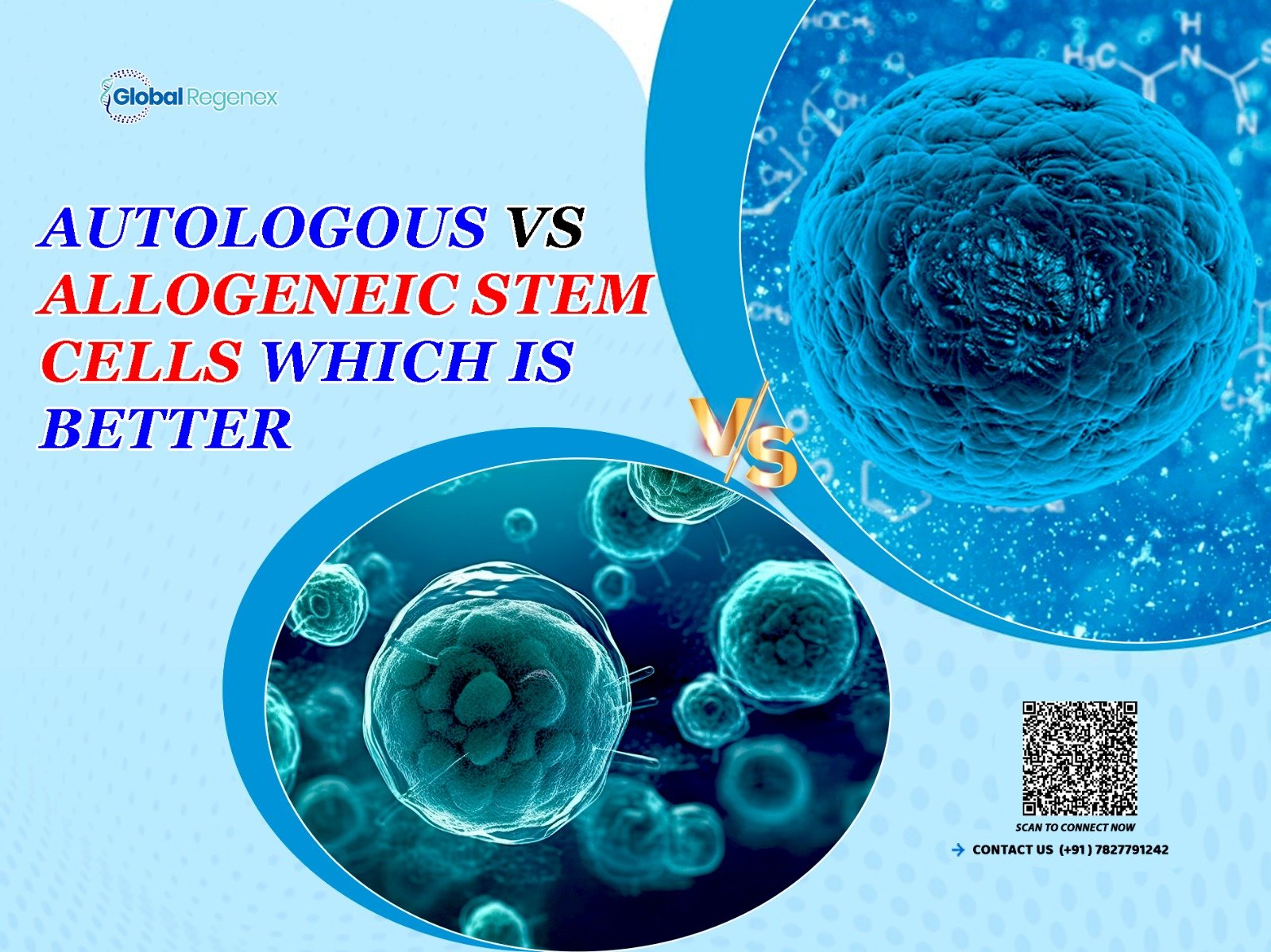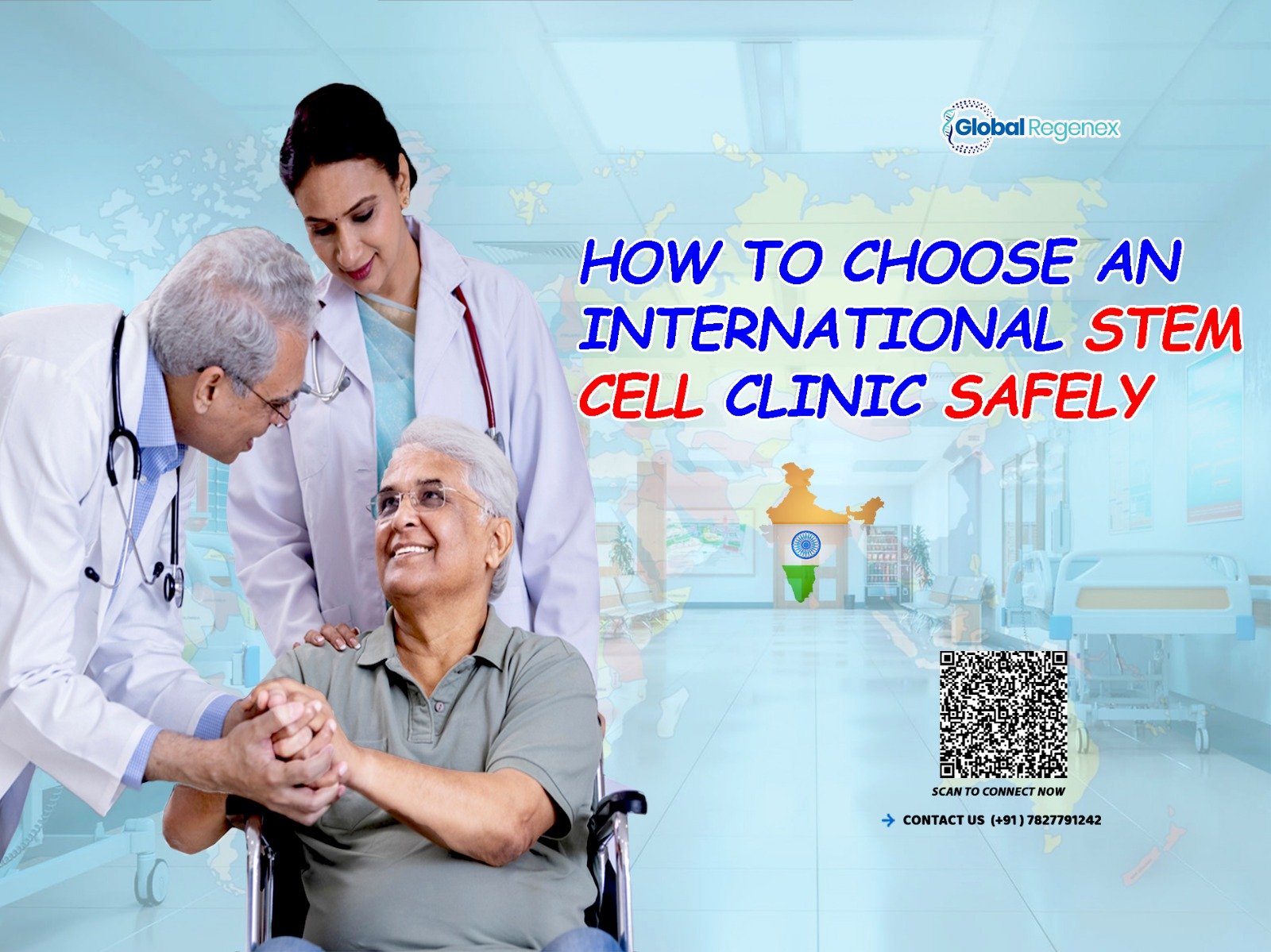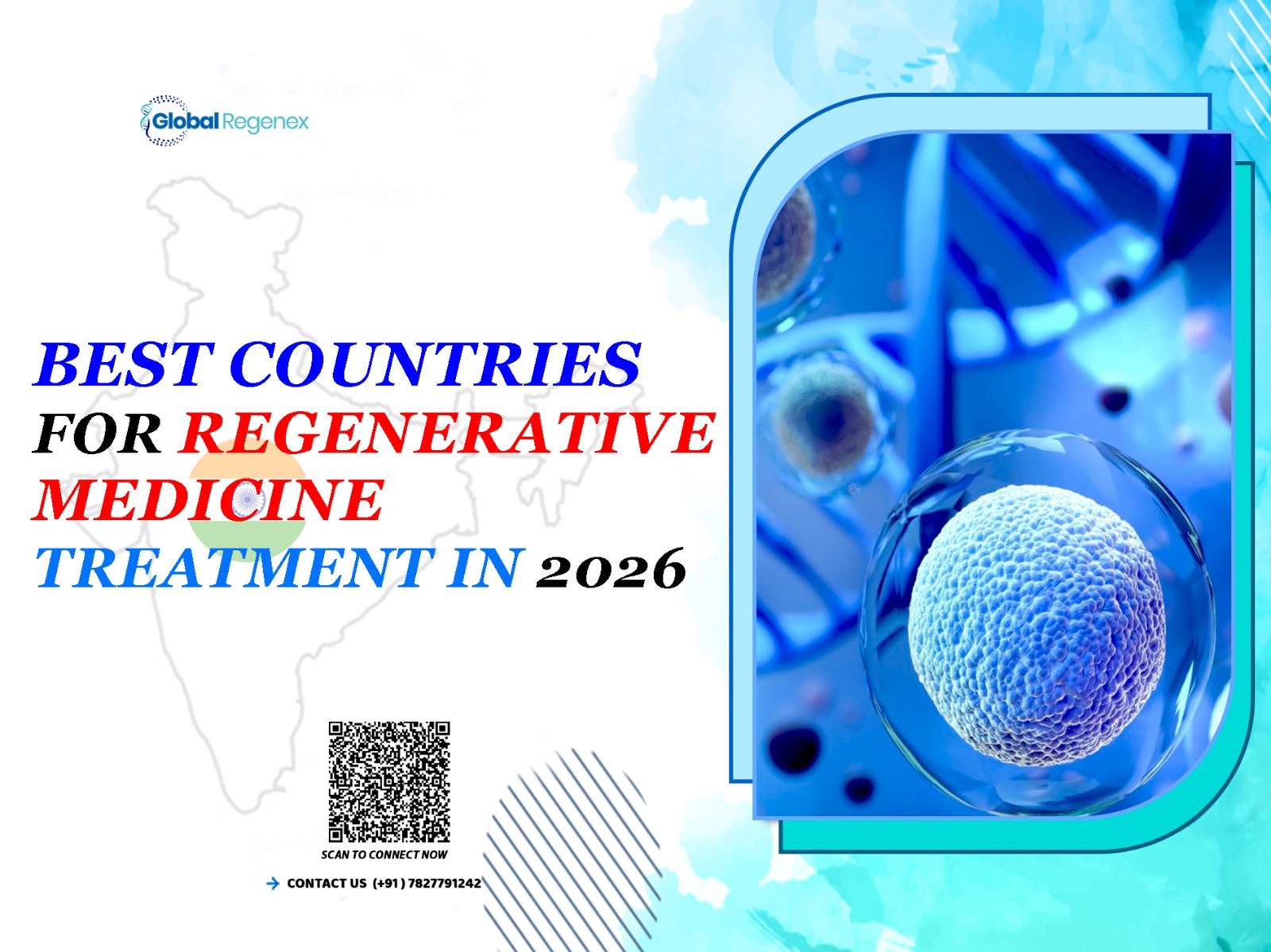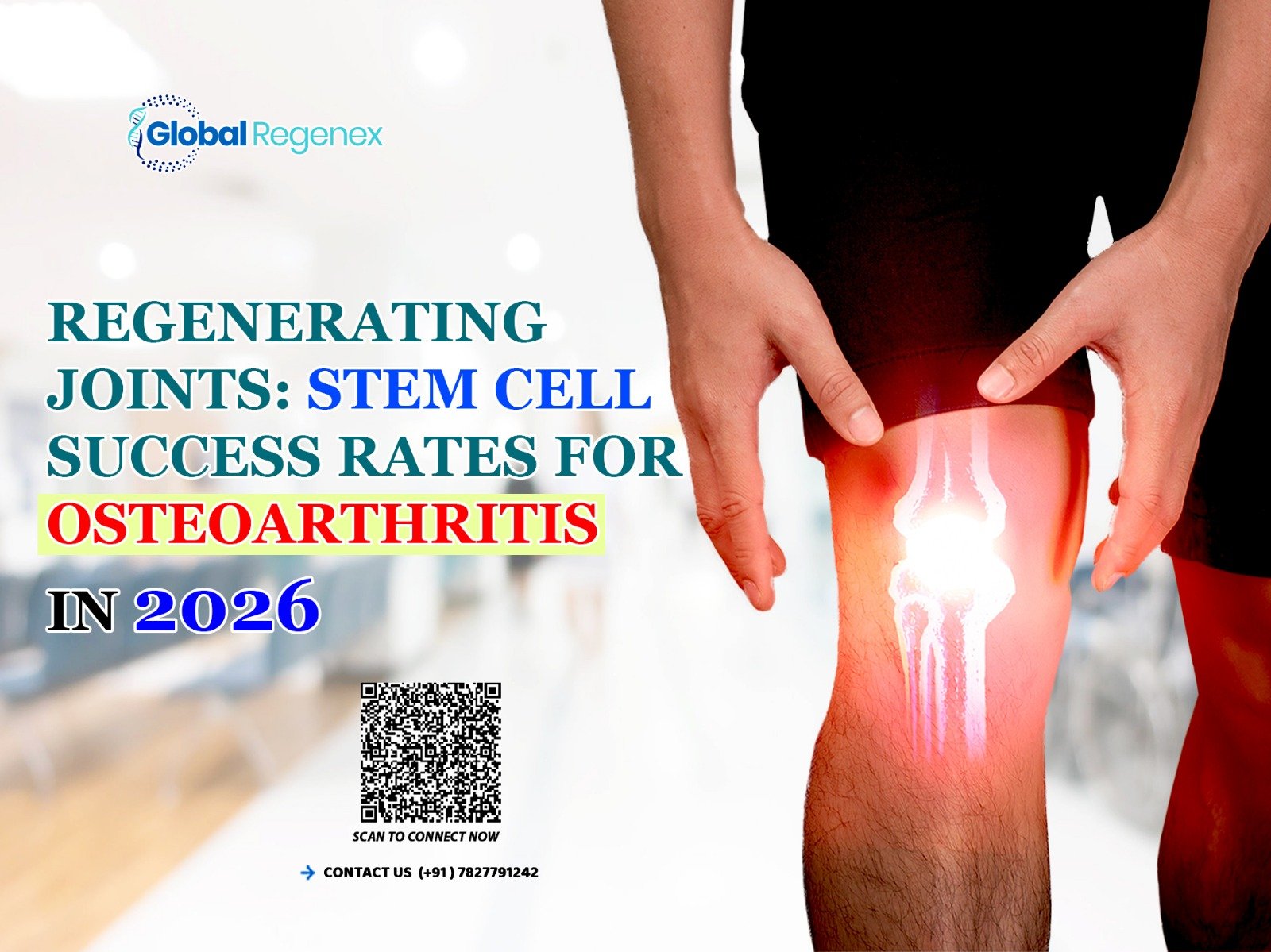- Published on:October 14, 2024
- Updated on: November 13, 2024
- Author: Global Regenex
Exosome Treatment for Female Infertility

Have you tried everything that comes to your mind to have you conceive? Heard about exosome treatment? It is a new development and possibly hope for women who have problems with infertility. Exosomes are small cellular fragments that help in cell communication and healing which is used in the fertility treatment to improve the health of eggs. It provides support for the embryo’s development and creates a better pregnancy environment.
This is a new therapy that still continues undergoing various studies, but shows promising results in terms of enhancing the potential scope of women’s fertility. It could be one viable option you may consider taking if going through advanced fertility treatments.
Common Causes of Female Infertility
Female infertility refers to a condition where a woman fails to conceive for at least one year. Female infertility can be caused by different reasons affecting the reproductive system. Infertility is a great problem among many women in the world, and having the right knowledge of the causes will also enable women to seek the right treatment for the disease. Here are some of the common causes of female infertility and their explanations.
1. Ovulation disorders
Many women face a problem of ovulation. This is the stage in which the release of the egg by the ovaries comes about. For women who suffer from conditions such as PCOS and hormonal imbalance, it may be impossible to have an ovulation. This will make conception a bit tough.
2. Age
A woman’s ability to conceive reduces with age. Women above 30 years will have fewer healthy eggs than those below 30 years. Their chances of having a healthy child are lower compared to younger women.
3. Blocked Fallopian Tubes
The important role of the fallopian tubes is carrying the egg to the uterus. In case they are clogged or damaged, then it could prevent sperm from reaching the egg. The blockages can be infections, prior surgeries, and endometriosis, among other diseases.
4. Endometriosis
Endometriosis is the medical condition in which tissue that normally exists inside the uterus grows outside. The pain may be very severe and usually inability to conceive occurs when the ovaries, fallopian tubes, and the inner lining of the uterus are damaged.
5. Uterine Pathologies
Malformations of the uterus or growths of fibroids on the uterus may lead to implantation failure, making carrying a pregnancy even difficult.
6. Endocrine Disharmonies
Hormones regulate the menstrual cycle and reproductive system, causing an irregularity that affects ovulation when estrogen and progesterone levels are under- or overproduced. It is difficult to get pregnant.
7. Lifestyle Factors
Causes like stress, being overweight or underweight, smoking, alcohol consumption, and overuse of caffeine affect fertility. A healthy lifestyle will increase the chances of getting pregnant.
How Exosome Therapy Can Be Beneficial For Treating Female Infertility?
Exosomes are small particles that a cell releases and have a crucial role in cell to cell communication. In fertility treatment, exosomes from the stem cells or any other source aid in improving the reproductive organs. That therapy should improve fertility by perfecting the health of the reproductive organs, supporting developing eggs, and creating a better environment for pregnancy. This can be the answer in the future for all the women who have been facing infertility with research going on presently. Here are some benefit a woman can leverage from exosome therapy:
- Improve quality of eggs: Exosomes can contribute to the improvement of egg quality since it enhances cell health and increases the possibility of successful fertilization.
- Restores normal ovarian function: Exosomes restore normal ovarian function that produces healthy eggs accompanied by critical control of menstrual cycles.
- Reduces inflammation: The therapy exerts anti-inflammatory properties that may reduce inflammation in the reproductive organs and create an environment healthier to conceive.
- Promotes uterine health: It is said to promote uterine health, creating an easier atmosphere for embryos’ implantation and giving a higher likelihood of getting pregnant.
- Increases cell regeneration: Exosomes stimulate regeneration of cells with broken or old lines in the reproductive system and enhance the fertility of women who may have hit a reproductive decline.
- Minimally invasive treatment: A minimally invasive treatment, exosome therapy is a non-surgical procedure that does not expose women to the kind of stress more traditional fertility treatments often do.
Improvements in Female Body After Taking Exosome Therapy
A new therapy that has emerged from the spotlight to help women overcome infertility is exosome therapy. These tiny particles are exosomes, released by cells which carry important messages between themselves to set off further actions. They assist in the repair and upgrading of cells in the human body including reproductive cells.
Many women improve the levels of their reproductive health after undergoing exosome therapy. The course of therapy improves the quality of eggs and function of the ovaries, thereby increasing the chances of conceiving. In addition, exosomes may facilitate the improvement in the uterine lining for better implantation and growth of a fertilized egg.
Improvements also include better hormonal balance, which is important in the regulation of the menstrual cycle and also supports fertility. Exosome therapy may also help the body control a number of conditions related to fertility, like PCOS or endometriosis, in the process of improving cell communication and reducing inflammation.

